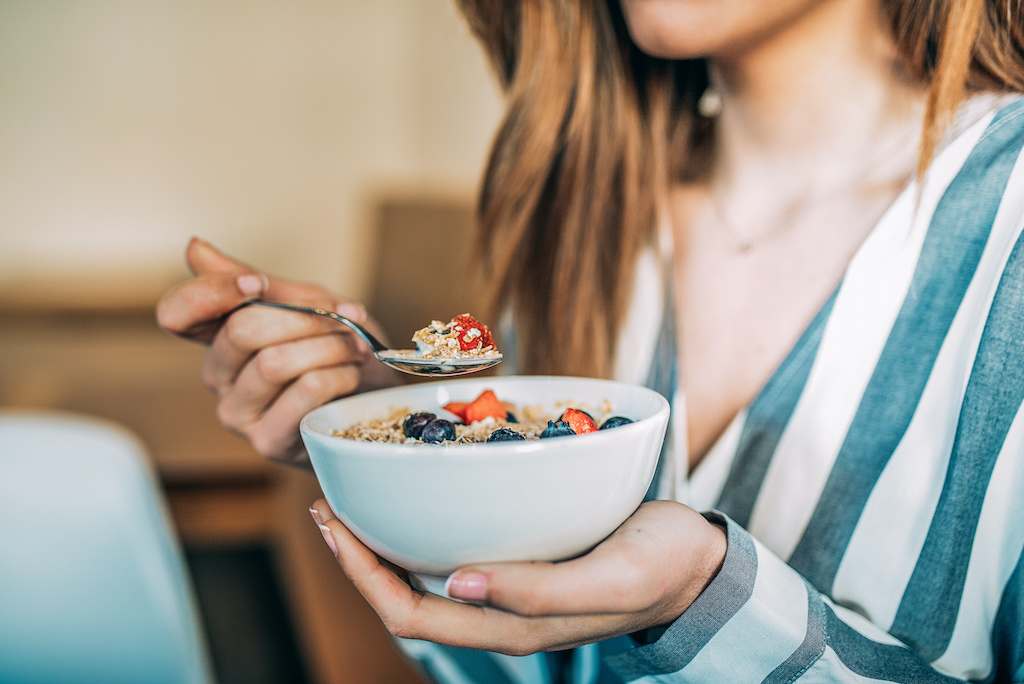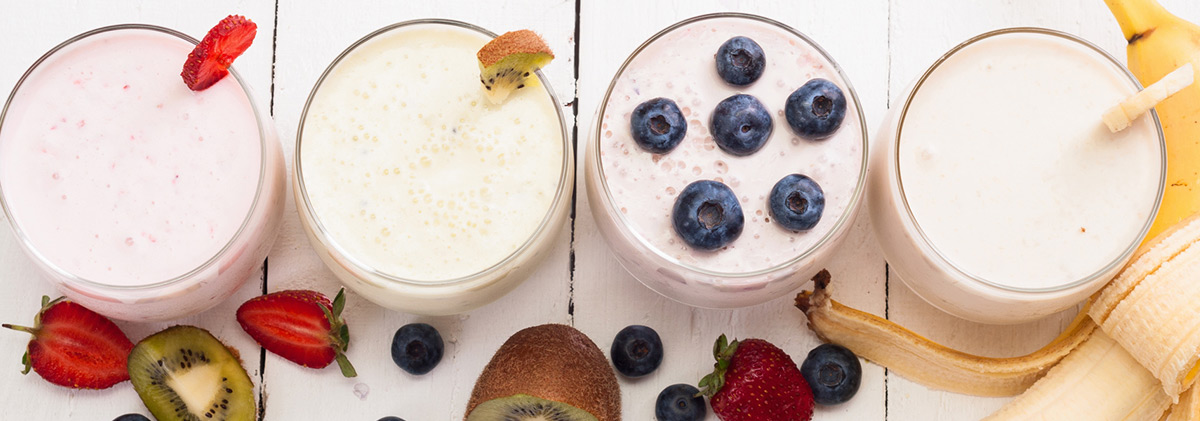Eating a balanced breakfastis essential, especially when you are an athlete. Find out how to prepare a breakfast worthy of a champion, as well as some ideas for easy-to-prepare recipes that fit your specific needs: Classic, quick or diet breakfast, the choice is yours!
What constitutes a balanced breakfast?

Considered the most important meal of the day, breakfast affects our mental and physical abilities. A balanced breakfast must provide between 25 and 30% of the calories absorbed during the day, divided into several groups of essential nutrients, in order for us to stay in good shape.
The golden rules for a breakfast worthy of a champion
A balanced breakfast should include:
- Carbohydrates are converted into glycogen and provide energy throughout the day, especially during exercise.
- Proteins, the main component of the muscles are particularly useful for sportsmen and women.
- Fats to maintain healthy brain and cell function: Fatty acids, such as omega-3 and 6 in oilseeds and certain vegetable oils are the best sources of fats for good health.
Making the ideal breakfast
The ideal breakfast consists of:
- 1 or 2 sources of low or moderate index carbohydrates: Wholemeal bread, oatmeal, fruit, and so on.
- 1 source of healthy fat: Seeds, oilseeds, coconut oil or olive oil, etc.
- 1 source of protein: Eggs, chicken or turkey breast, cottage cheese, etc.
- 1 hot or cold drink to hydrate after a night’s sleep.
Healthy breakfast habits

By adopting these healthy habits, you’ll make sure you enjoy all the benefits of your breakfast:
- Do not skip breakfast.
- Take your time with this meal and make it an enjoyable break to get the day off to a good start.
- Sit down and avoid having breakfast while walking, driving, etc.
- Eat breakfast no later than 30 minutes after waking up, so you don’t get too hungry and eat a breakfast that is not proportionate to your needs.
The following tips can help you replace high index carbohydrates with low or moderate index carbohydrates, which are better for your health and more suitable for long-duration workouts:
- You can replace white bread with wholemeal bread, which is more filling and higher in fibre.
- Cornflakes or other processed cereal-based products can be replaced with oatmeal, an excellent source of protein that contains fewer sugars.
- Instead of jam, honey or fruit juice, try to eat fresh fruits as they are less sweet, just as tasty, and above all, higher in vitamins and fibre, etc.
3 Balanced breakfasts for all athletes

Now that you know all the tricks to make a balanced breakfast, all you have to do is find a few recipes to vary your menus and never run out of inspiration to start your day well. These recipe ideas will provide you with a good basis to create a breakfast tailored to your preferences and your current goals.
Classic breakfast
You can try this classic breakfast recipe and make changes to it by choosing seasonal ingredients based on your own preferences:
- A large hot or cold drink: Green tea, non-dairy milk or whatever you prefer.
- Two slices of wholemeal bread.
- A boiled egg or yoghurt.
- A handful of seeds or nuts: Almonds, hazelnuts, walnuts, pumpkin seeds, etc.
- A piece of fresh fruit: Orange, apple, kiwi, banana, peach, or mango, if available.
Quick breakfast
If you don’t have much time to prepare breakfast in the morning, opt for a smoothie bowl, a quick breakfast that is very popular among athletes, to be enjoyed sitting down while taking a break before starting the day:
- Make a smoothie with fresh fruit and milk or a non-dairy alternative.
- Top it with berries, pieces of fresh or dried fruit, or mint.
- Add a handful of oatmeal, seeds or wholegrain cereal to it.
- It’s ready, enjoy!
Diet breakfast
If you are following a fitness plan aimed at weight loss, eating a healthy breakfast will help you optimise the results. Calculate your daily energy expenditure to adjust your nutritional intake accordingly: The secret to weight loss is to consume slightly fewer calories than you spend during the day. This example of low-calorie breakfast can be used as a basis:
- 1 large cup of matcha green tea without sugar.
- 1 bowl of oatmeal with a non-dairy drink (unsweetened soy milk is the lowest-calorie vegetarian drink).
- 5 or 6 almonds.
- One portion of fresh fruit: Pineapple, grapefruit, pears, raspberries, whatever you like.
Check out our Health & Fitness page for more advice.
